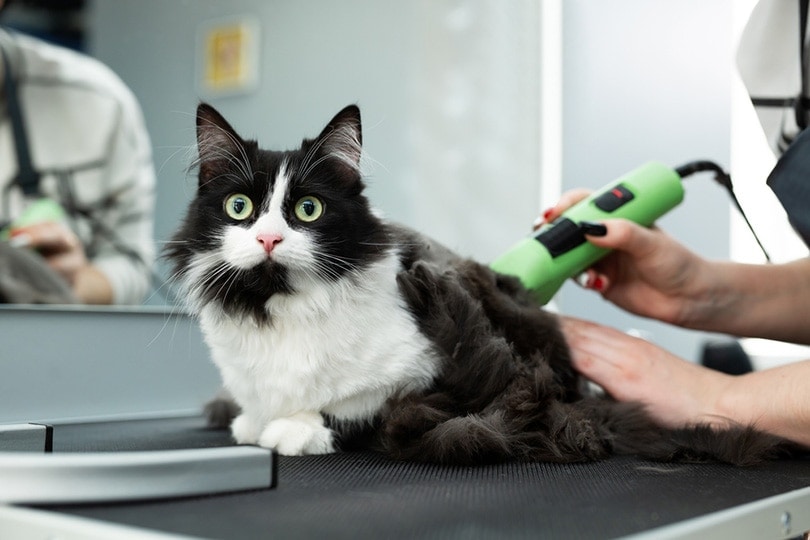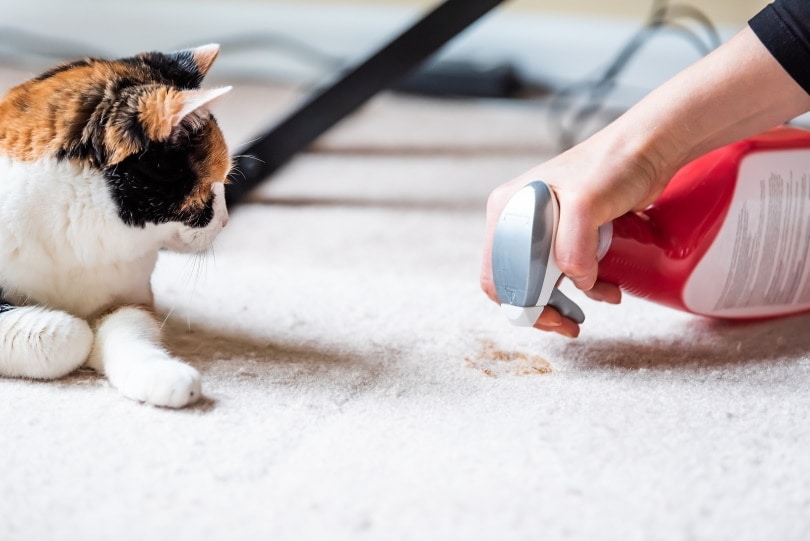How Does a Cat Show Sadness? Vet-Approved Signs & Behavior Explained
Updated on
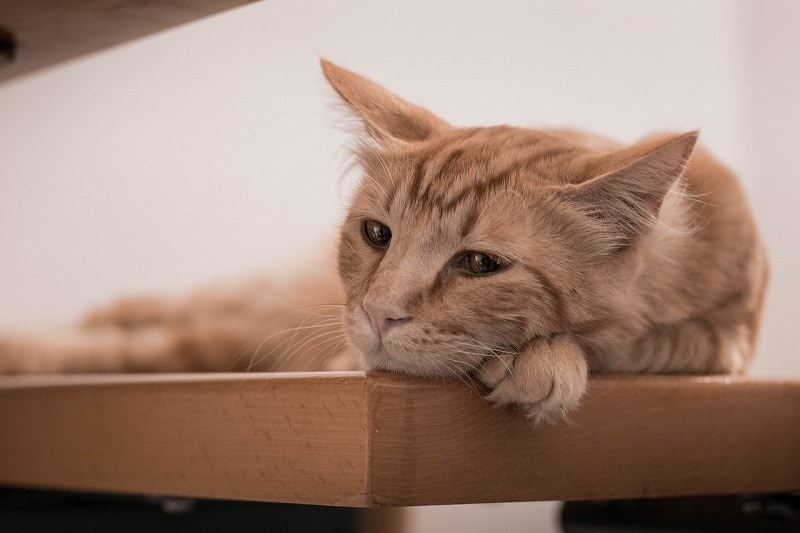
As sentient beings, cats can feel a range of different emotions, from depression to grief, boredom, and happiness. This means that cats can feel negative emotions such as sadness, although they perceive and respond to feelings of sadness differently than a human would.
We as cat owners might struggle to understand how our cat is feeling and find it difficult to tell if our cat is feeling sad or not. Determining whether our cat is sad or not can help us cheer up our felines or prevent them from becoming sad in the first place. There are multiple ways for cats to show that they are feeling sad, usually by starting to act quiet and out of their habits.
This article will tell you all the information you need to know and the signs of a sad cat.
Can Cats Be Sad?
Yes, our typically content felines can feel sad. Sadness is a primary emotion and it is widely supported in animals. However, they show sadness differently and feel sad for reasons that are different from humans. Most feelings of sadness go hand-in-hand with cat depression.
Cats can either show feelings of sadness over a prolonged time due to depression, or they can feel temporary sadness due to a certain life event. Since cats can’t talk, we find it difficult to fully understand why our cats could be feeling sad since they can’t explain why to us.
This makes it important to understand your cat’s body language and normal daily habits (such as eating, playing, social interaction, and sleeping). When these things change or your cat starts showing abnormal behavior, you can pick up that something is wrong with your feline companion. Certain cats are more sensitive than others and may feel sad, scared, or stressed more easily than other cats.
If you notice that your cat is acting strange and showing signs of being sad, they should be taken to a veterinarian for a check-up. Cats may hide their pain and spend more time hiding or sleeping. This behavior may mimic signs that your cat is feeling sad, but it could be related to a medical issue.
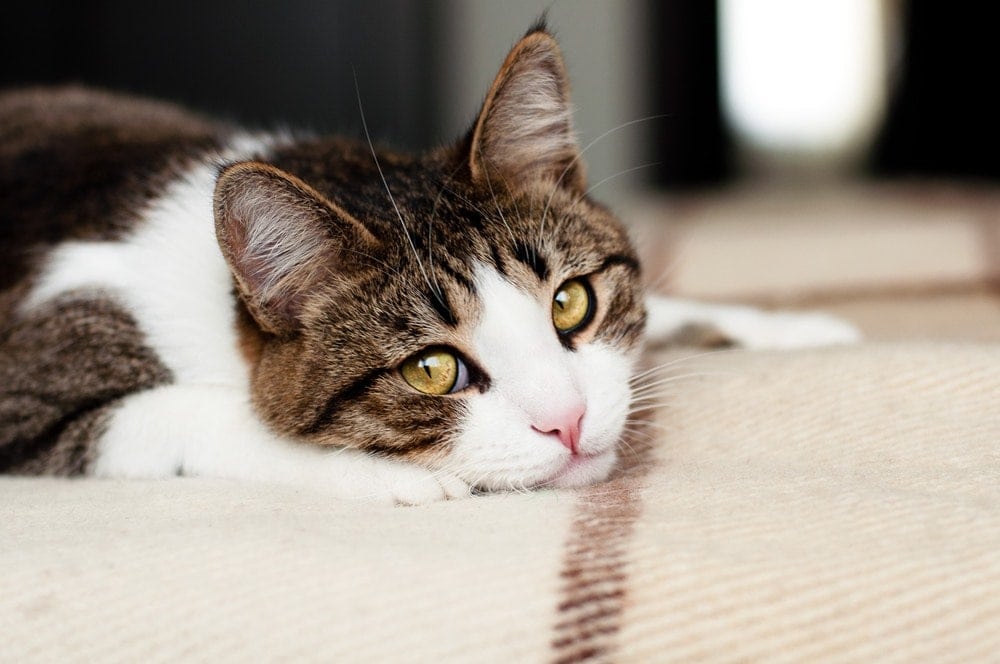
The 7 Reasons That Cats Get Sad
Cats can get sad for a variety of reasons, although humans won’t fully understand why cats may feel this way.
Let’s take a look at common reasons that a cat would be sad.
1. Moving Houses
While moving to a new house can indicate a fresh start, cats probably don’t feel the same way. Cats enjoy routine, a secure territory, and the comfort of the place they call “home.” So, when a cat has to move to an entirely new house with new sounds and smells, they can start to feel stressed, sad, or unsettled.
You might find your cat hiding away more and spending less time doing the activities they love. It is also quite common for cats to try to wander from the new house’s property in search of their old home. Cats don’t quite understand why they had to move, so they will seek the comfort of the home they had before.
2. New Ownership
Whether you had to give your cat up for adoption or they had to be rehomed for other reasons, the cat may begin to feel sad. They aren’t going to understand why they can’t be with their previous owner and are now being taken care of by a new one, and they might feel sad in a shelter environment if they were given up for adoption. Many cats can also become skittish around new people, and they are likely to be grieving their previous owner.
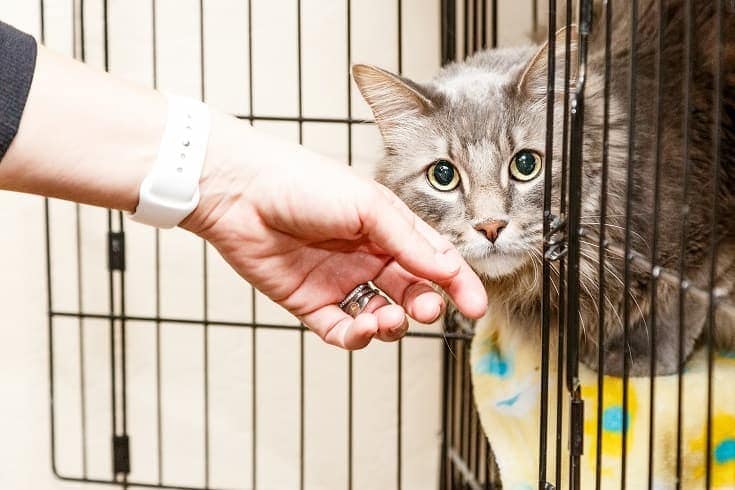
3. Depression
Just like humans, cats can get depressed too. However, their feeling of depression is different from humans. Cats can either have a heightened appetite or lose their appetite completely. They may prefer to spend more time sleeping and hiding, with significant changes in their daily routines. A depressed cat will show signs of being sad or stressed, and it is typically caused by prolonged feelings of stress.
4. Changes in Routine
Cats love familiarity in their life because it makes them feel safe and comforted. As soon as changes start to happen in your cat’s life, they can feel sad and confused. Stress is likely the contributing factor that can cause your cat to show signs that they are feeling sad. Changes in routines can include introducing new cats or other pets into the home or changing your schedule, which means you’re spending less time with your cat than you once did.
5. Loss of a Loved One
While cats don’t grieve in the same way that humans do, it is likely that they still feel some type of sadness toward deceased family members. This type of sadness and grief is usually seen in cats after the loved one’s death caused a change in the cat’s routine.
However, the cat may be confused as to where the person went and why they aren’t coming back for the cat. It’s not entirely understood whether animals like cats can perceive death the way that humans do. If your mood has changed since the loved one passed away, your cat can pick up on those emotions, which may affect how they are feeling too.
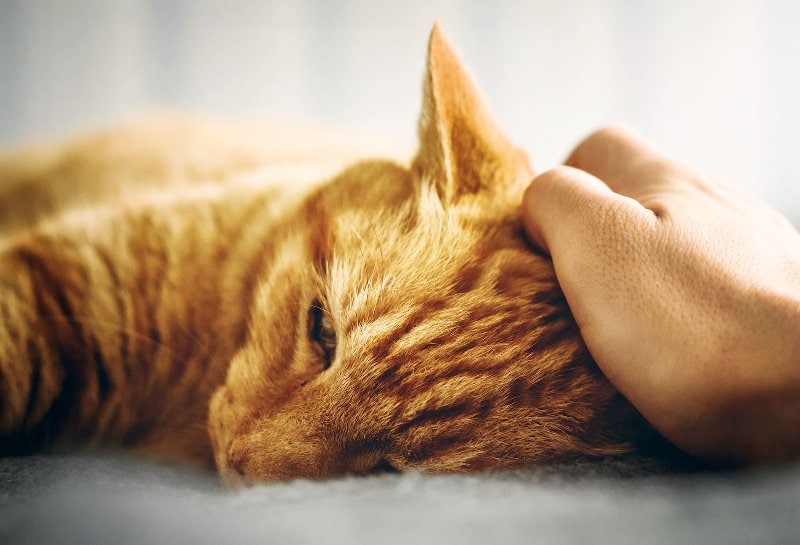
6. Illness and Pain
Cats are experts at hiding signs of pain or illnesses since it makes them feel vulnerable. They may spend more time hiding and not showing up for mealtime, changing their litterbox habits, or spending more time sleeping than usual. A cat that is in pain will have difficulty jumping and playing like they used to, especially if they have a painful condition like arthritis.
7. Boredom
Surprisingly, prolonged feelings of boredom for your cat can cause them to feel sad. A cat who experiences no socialization, toys, entertainment, or activities that keep their minds and body busy is likely to become bored. If these problems persist, your cat will begin to show signs that they are feeling sad and bored.
How to Tell If Your Cat Is Sad
Cats do not get sad and show emotions as humans do, but they will show signs that are different from their usual behaviors. Cats can’t show us that they are sad by talking or crying, since they are unable to do so.
Instead, if a cat that stuck to daily routines, was outgoing, and had great eating habits suddenly became quiet and reserved, it would definitely be a sign that something was not quite right. Learning to recognize these unusual behaviors can help you determine if your cat is sad.
- Changes in grooming habits: Excessive grooming to the point of fur loss and irritated skin, or under grooming.
- Hiding more than usual: A once outgoing cat may spend more time hiding. You might have difficulty finding your cat and they don’t come out to play, eat, or socialize like they once did.
- Loss of interest in fun activities: A sad cat won’t be feeling like their usual self. They will spend more time sleeping and show a general loss of interest or motivation in activities they once enjoyed.
- Excess vocalization: Cats that are in pain or feeling sad may vocalize more. It is typically an indication that something in their environment is upsetting them, or that they are in physical pain.
- Changes in eating and drinking habits: A sad cat can either over or undereat, leading to changes in their weight. It can indicate that the cat is in pain or feeling sad over a condition that is causing appetite changes.
- Spending more time sleeping:While cats require around 12 to 16 hours of sleep per day, excessive sleeping can indicate that your cat is not feeling their best.
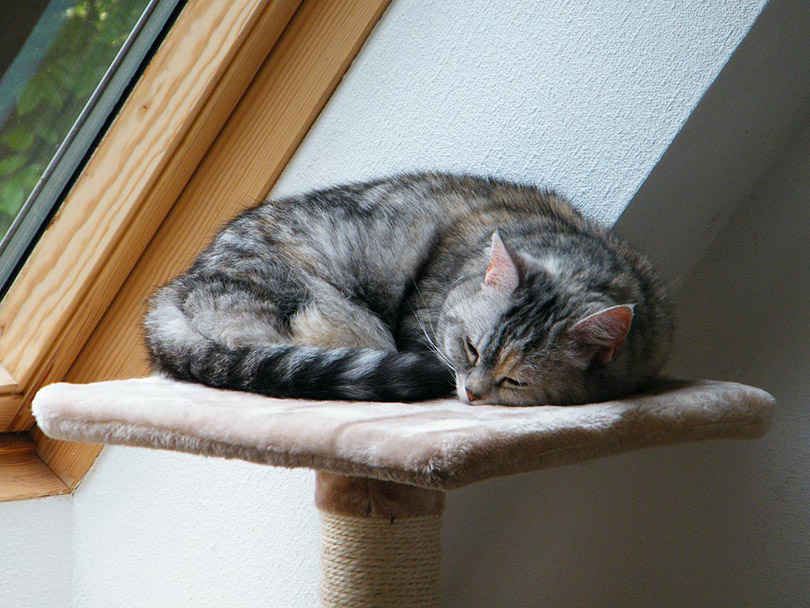
Cheering Up Sad Cats
The best way to cheer up a sad cat is to address the problem that is making them feel sad. Most cats will not become happy if you give them a new toy or treat since this may only cause them to feel happy temporarily.
If the reason your cat is feeling sad is due to a medical condition that is causing them pain, they will need to be taken to a veterinarian. If the illness or painful condition is chronic, they will need medication, treatments, and changes in their environment to manage their clinical signs to help them feel like themselves again.
When moving houses or changing around your cat’s routine, be sure to move all their bedding, toys, and litterbox with them. Your cat will feel more comforted and surrounded by familiar smells. Since most cats will try to wander from their new homes, keep them secured either in a room for a while, or only allow them access to the outdoors in the safety of a catio.
If boredom is the reason for your cat’s sadness, continue to give them toys, fun activities, a space to roam safely, and plenty of interaction to keep them from becoming bored.
In Conclusion
Some cats may feel sadness as an emotion from time to time, while others may experience prolonged feelings of sadness and stress that can develop into depression. Always monitor your cat’s behavior so that you can tell when they are showing signs of being sad.
It helps to prevent any situations within your control from happening that could cause your cat to become sad. Since this is not always possible, addressing the situation directly with the help of your veterinarian can help your cat overcome any feelings of sadness that they might be experiencing.
Featured Image Credit: avi_acl, Pixabay





